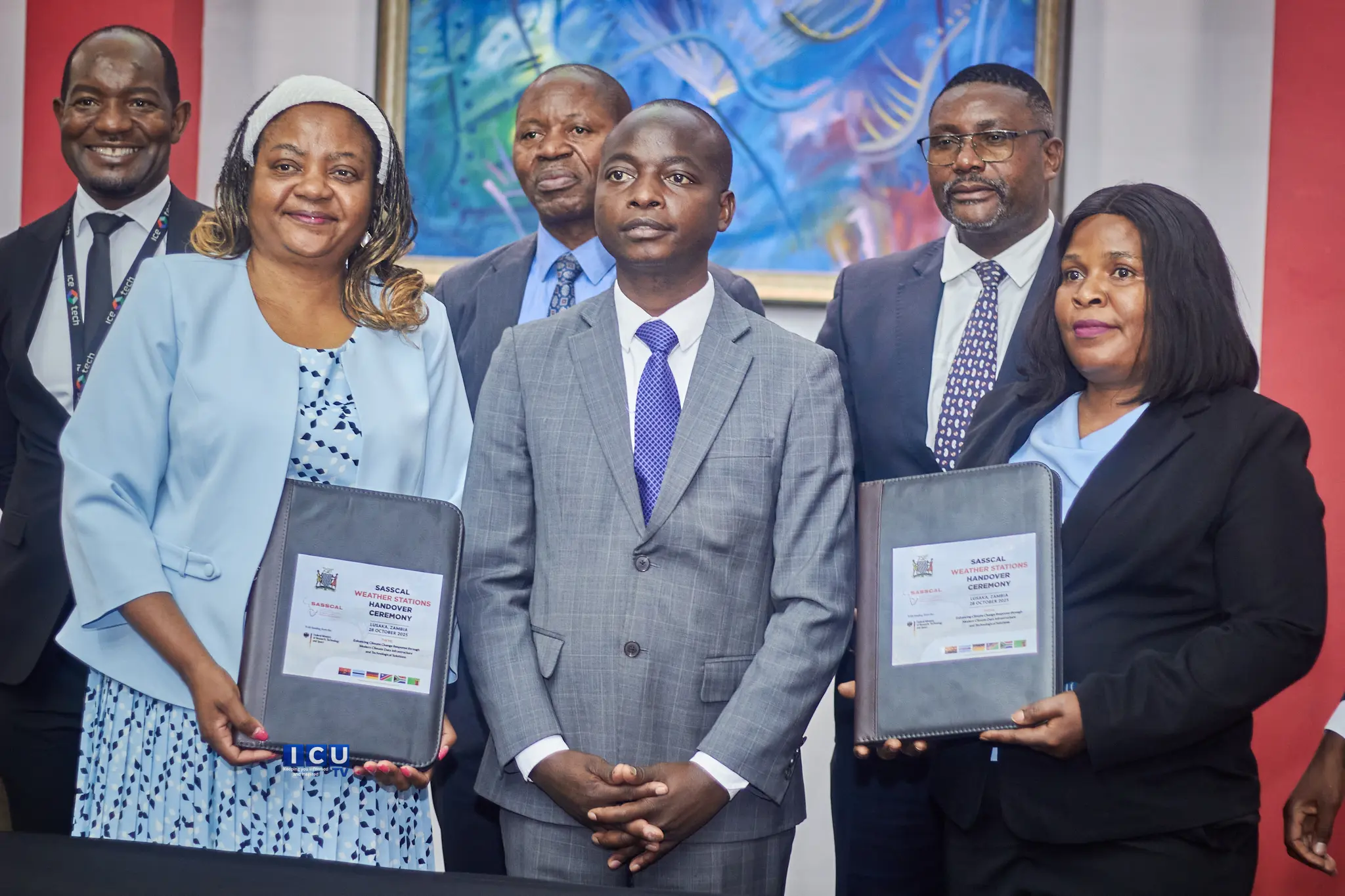Zambia Strengthens Climate Resilience With 15 New Automated Weather Stations

Lusaka, 7 October 2025
The Ministry of Technology and Science has received 15 automated weather stations under the Southern African Science Service Centre for Climate Change and Adaptive Land Management (SASSCAL) Weathernet Infrastructure Project, marking a significant step in Zambia’s efforts to combat climate change through modern climate data systems and innovation.
Speaking during the handover ceremony held at Radisson Blu Hotel in Lusaka, Permanent Secretary Eng. Dr. Brilliant Habeenzu said the initiative reflects SASSCAL’s shared commitment to supporting member states in addressing the global climate crisis through technology and data-driven solutions.
“Zambia’s average annual temperature has risen by 1.3°C since the 1960s, resulting in rainfall variability that threatens food and water security,” Dr. Habeenzu noted. “These weather stations will strengthen our ability to respond effectively to such challenges through reliable, real-time data for planning and decision-making.”
The €630,000 project, supported by the Federal Republic of Germany, will help bridge critical gaps in weather and climate monitoring. Dr. Habeenzu emphasized that accurate and consistent climate data is essential for early warning systems and national planning across sectors such as agriculture, energy, water management, and disaster preparedness.
He urged the Ministry of Green Economy and Environment to ensure the sustainable operation and maintenance of the new stations, highlighting that the data generated will empower communities — from farmers and fishermen to policymakers — to make informed decisions that protect livelihoods and enhance resilience.
“The government remains committed to leveraging science, technology, and innovation in addressing climate-related challenges,” he added, commending SASSCAL and its partners for their ongoing support.
SASSCAL Executive Director, Prof. Nelago Indongo, reaffirmed the organization’s dedication to supporting Zambia and other Southern African nations in building climate resilience through scientific innovation.
She described the Weathernet (WeNet) Project as a “strategic investment in improving access to accurate, real-time climate data,” funded by the German Federal Ministry of Research, Technology and Space. The initiative has expanded meteorological capacity across Zambia, Angola, Botswana, and Namibia, enabling better-informed policies and development planning.
“Reliable data is the foundation for effective climate adaptation and national planning,” said Prof. Indongo. “These weather stations will serve multiple sectors — agriculture, energy, aviation, research, and disaster management — ensuring evidence-based decisions that safeguard communities.”
Zambia Meteorological Department Acting Assistant Forecasting and Research Director, Micah Namukoko Tembo, praised the project’s transformative impact, noting that the new automated weather stations now deliver data updates every 10 minutes, dramatically improving forecast accuracy.
She added that the department plans to expand the number of such stations nationwide to further enhance localized weather reporting and preparedness.
Master’s students from the University of Zambia attending the event expressed optimism about the initiative, saying that access to high-quality weather data will enrich their research and foster greater community awareness of climate change, sustainability, and environmental protection.
As Zambia continues to strengthen its national climate monitoring infrastructure, initiatives like the SASSCAL Weathernet Project are expected to play a crucial role in advancing scientific collaboration, adaptive land management, and resilience-building across the region.
